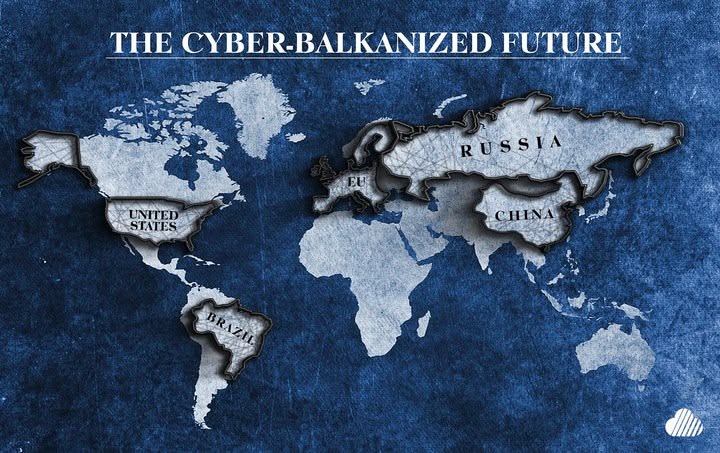The Age of Two Internets Is Here
Recent attacks in Iran and growing propaganda wars have revived talk of a coming split: two global internets. As the New York Times warned back in 2018, we are entering an era of internet Balkanization — and now, it’s no longer a warning. It’s happening.
What's Going on in Iran?
Western Media outlets have reported that Iran has completely shut down its internet. If by "internet" they mean the World Wide Web, that’s technically accurate. However, what's not reported is Iran’s quiet advancement of its National Information Network—an internal intranet that enables the regime to disconnect from the global internet while maintaining domestic online services. Following recent attacks on Iran, a senior official stated on Thursday that the country must move beyond mere platform filtering and fully implement a “national internet” to shield citizens from what was described as foreign digital espionage, according to Iranian state media.
Iran is Not Alone
CHINA
China maintains a tightly regulated online environment through what is commonly known as the "Great Firewall." This system combines government legislation with advanced technological tools to control internet access within the country. It enforces strict cybersecurity measures to monitor, censor, and restrict digital content deemed sensitive or harmful by the state.
China has built its own infrastructure—servers, search engines (like Baidu), platforms (WeChat, Weibo), and cloud services—to function independently. These services ensure Chinese users can continue their online activities even if global connections are severed.
RUSSIA
In 2014, Russia's national security body commissioned the government to create an independent internet for the BRICS bloc to reduce reliance on Western-controlled internet infrastructure. Dmitry Peskov, the Russian press secretary, clarified the initiative's purpose: "We all know who the chief administrator of the global internet is. And due to its volatility, we have to think about how to ensure our national security…It's not about disconnecting Russia from the World Wide Web, it's about protecting it (Russia) from possible external influence."
In 2019, Russia passed legislation enabling the government to control all internet traffic entering or leaving the country. This law:
Requires Russian ISPs to install deep packet inspection (DPI) equipment
Allows routing of internet traffic through state-controlled exchange points
Enables complete internet shutdowns or rerouting, isolating Russia from the global web
BRICS+
These countries aren’t just isolating; they’re collaborating. Joint projects on cross-border tech standards, fiber optics, and satellite systems suggest a BRICS+ digital bloc is forming — a parallel internet for the East.
Some nations may straddle both systems, but the divide is deepening. Within a decade, two incompatible digital worlds — one U.S.-led, the other BRICS-aligned — may define the future of cyberspace.


